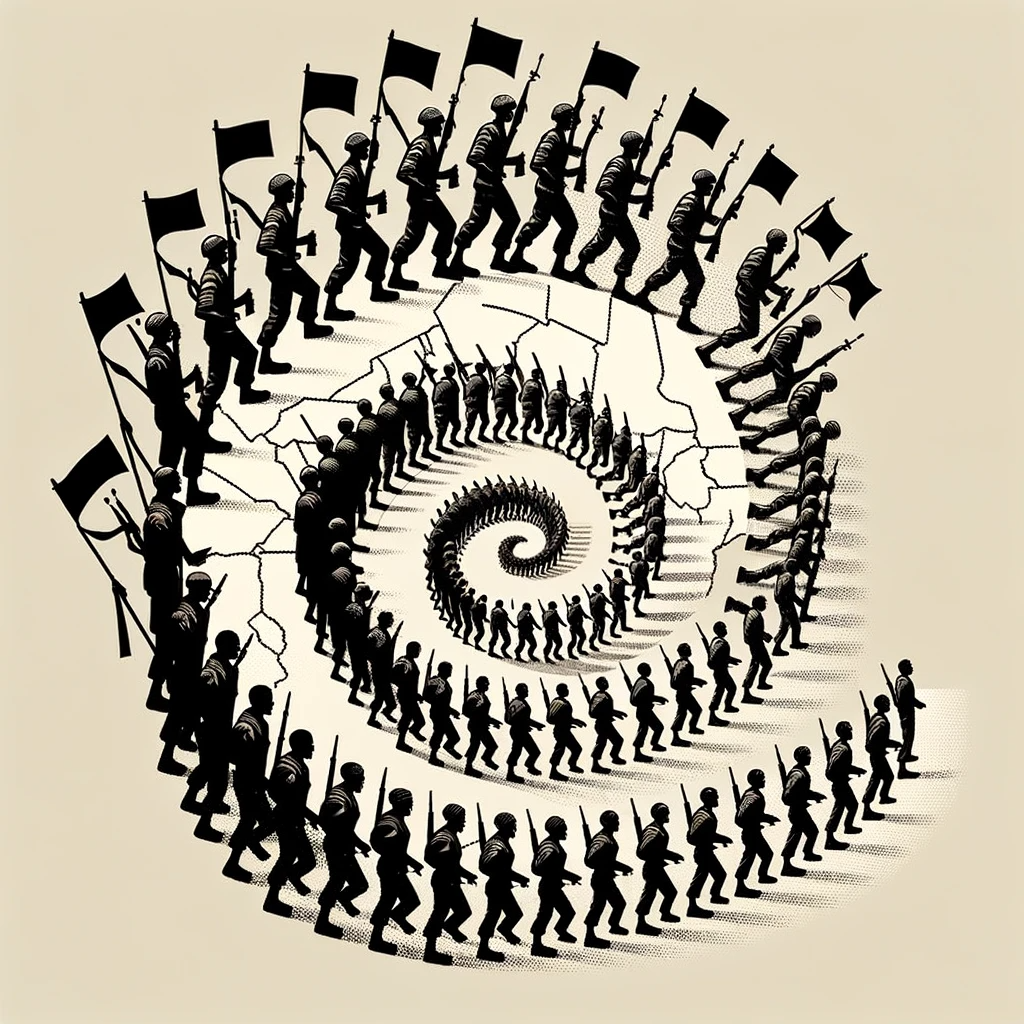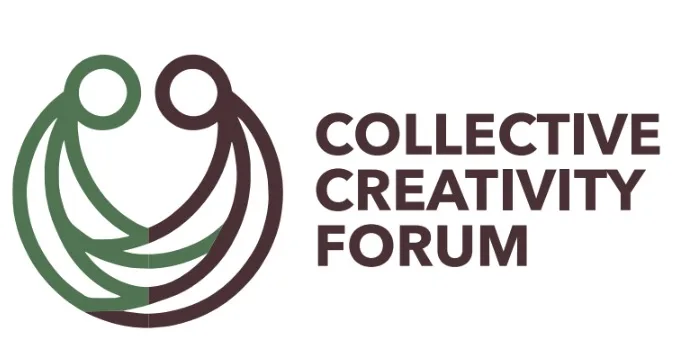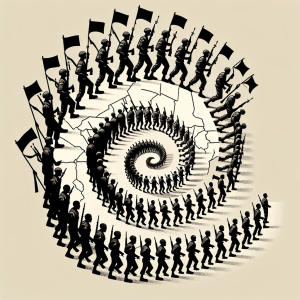Coups in Africa, particularly the Sahel region of West Africa, have become something of a
routine affair. All eyes are on the most recent cases in Mali, Guinea Bissau, Burkina Faso, and
Niger, as pundits and analysts question why these countries are in a constant state of instability.
The coups themselves followed very similar and successful scripts; in fact, as the perpetual cycle
of coups has occurred throughout the West African region following decolonization, new coups
have been executed with greater swiftness and efficacy.1
Regardless of the details of how the takeovers occurred, they are a symptom of compounding problems that tie back to the nation-state system in and of itself, and how it was asserted in the Sahel region. The pattern and frequency with which these coups are occurring lead us to a culprit much more pervasive than merely weak democratic institutions. What many fail to assess is whether or not these coups, rather than just being an assertion of power from strong-man military junta leaders or a disregard for democracy, are actually an act of desperation – a plea on behalf of the people (who often support and celebrate these sudden leadership changes) that feel any chance at an improvement in their livelihoods is better than a constant downward spiral. And furthermore, they are a testament to the fact that successful governance in MMCs under the nation-state system is much like fitting a square peg into a round hole – no matter how many times or iteration you attempt, it simply will not work.
The incongruence between the West African region’s needs and the very few solutions provided
by the state system starts at the borders with which the entire region is configured. When
European colonizers partitioned Africa into spheres of influence during the so-called “Scramble
for Africa”, they did so arbitrarily and without any consideration of the long term impact on the
populations residing in the continent. Now, a century later, the people of West Africa must pay
the price. Many countries in the Sahel region must grapple with a host of artificial impediments
including lack of natural resources, nonsensical borders, and an absence of viability in
agriculture or other industries.
Being stuck within the confines of these borders (as required by the nation-state system), it is
inarguable that the people of Mali, Guinea Bissau, Burkina Faso, Niger, and beyond are
suffering. This makes it quite easy for military juntas to gain legitimacy in their campaigns, as
they capitalize on the people’s vulnerabilities. As said by Hermann Ngoulou, a local in the
Gabonese capital of Libreville, the coups are “an expression of popular dissatisfaction.” The
region has been undergoing a “deep crisis on all levels due to bad governance, the rising cost of food, and the high cost of living.” While Africans may not love the concept of military rule, they
constantly wonder: if we can barely afford to survive in this system, then what’s in this system
for me?2
Another element that exacerbates the likelihood of and legitimacy for military-led coups is the
continued exploitation of the region by the West, particularly European countries. While many of
the countries in the West African region struggle with a lack of natural resources, the ones that
do either don’t have the capital to invest in profiting off them or those resources are being
profited off of by Europe. France, for example, runs the majority of uranium mining operations
in Niger and because the company which does so is state-owned, it benefits the French economy
– not Niger which they exploit. This not only further catapults West African economies
downward, but it is an incredibly effective selling point made by coup leaders who point out that
the current governments in their countries are continuing to allow their former colonizers to
exploit them.
What the domino effect of coups in the Sahel region encapsulates is that the region is deeply
embroiled in a perpetually harmful cycle, which different parties continue to capitalize on
whether that be Europe, military juntas, or the established governments. At the end of the day,
those who must pay the greatest price and suffer the most are the public who continue to put their
faith in coup leaders that fail to keep their word.
- Coups
-
November 29, 2023



